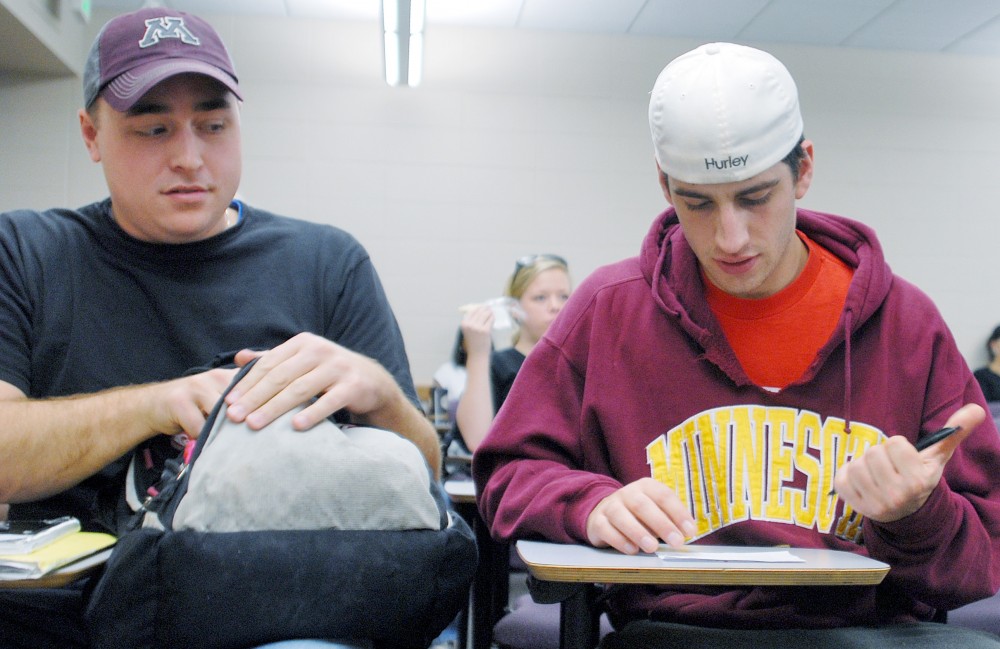Political science and cultural studies senior Sarah Nosbush passed out ballots Monday in a University of Minnesota state government class, and sheâÄôll be passing out more on Tuesday. No, she isnâÄôt getting people to vote early. Nosbush, an intern at FairVote Minnesota, a grassroots organization promoting alternative election systems , was hoping to raise awareness about instant runoff voting, by holding a mock election with sample U.S. Senate ballots. Instant runoff voting is a system where voters rank several preferred candidates rather than just choose one. If one candidate gets a majority of the first-choice votes, he or she wins the election. If not, the candidate with the fewest votes is eliminated, and those votes go to the second-choice candidates, until one candidate does receive a majority vote. Using instant runoff voting in Minneapolis municipal elections was proposed to voters in 2006, and passed with 65 percent of the vote. The city will start using the system in 2009. The cost of financing instant runoff voting in Minnesota would be marginal, said FairVote Minnesota Executive Director Jeanne Massey. The system has been endorsed by all the major presidential candidates, as well as Minnesota politicians. Better Ballot Program Coordinator Dakotah Johnson said itâÄôs an issue that âÄúcomes up time and time again,âÄù especially with the close U.S. Senate race this year. âÄúThis seems to be a problem with our mayoral races and our state races,âÄù Johnson said. âÄúWe need to first deal with our local elections and get people to know what instant runoff is.âÄù Minneapolis Ward 8 council member Elizabeth Glidden supports the system. Glidden said instant runoff voting has received widespread bipartisan support in Minnesota. The system is currently used in some European countries, like Ireland and France. The Minnesota Voters Alliance, a multi-partisan group focused on empowering the electorate , is one of the most outspoken opponents of the system, and has sued the city of Minneapolis to stop it from being implemented in 2009. MVA Executive Director Andy Cilek , who started the group in 2003, said that the system is unconstitutional and violates votersâÄô rights to vote for their preferred candidate. He said that, due to the way the ranking system works, voters âÄúdonâÄôt know if theyâÄôre helping or hurting their own candidate.âÄù Massey said she expects the decision in court to be âÄúexpeditedâÄù, so that IRV can be implemented come 2009.

Image by Ali Haupt
instant run off voting mock senate election
Mock election aims to promote awareness of instant runoff voting
Published November 3, 2008
0

